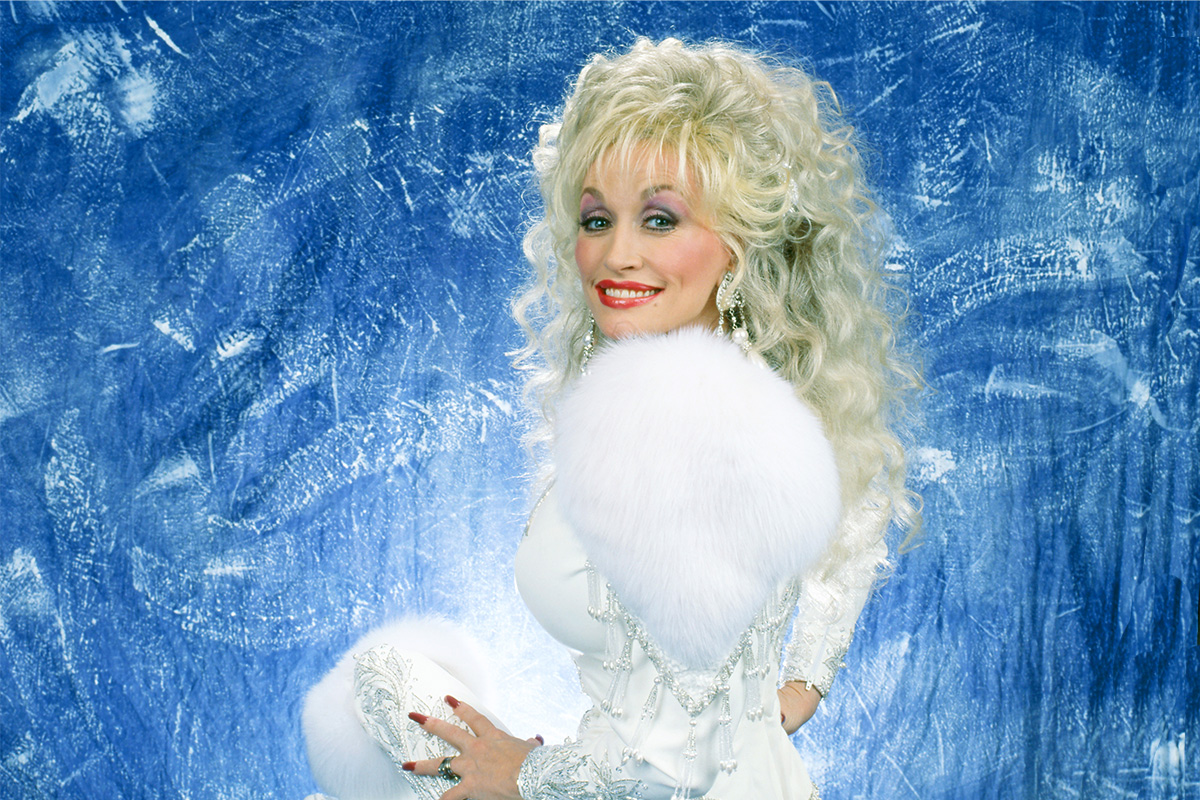Trigger warning: addiction and mentions of sexual violence
I first encountered Dolly Parton’s songs over the radio when I was in drug rehab at 14. Rehab was also where I first heard that corny-yet-moving “footprints” story about the Lord carrying us when we can’t walk on our own. At the AA meetings, I encountered the notion of “let go and let God,” the concept of giving up our power to an unseen higher one.
I had grown up in a religious household but rather isolated from a larger Jewish community, so my connection to Jewish practice, outside my family, often felt lonely and confusing. A spiritual person by nature, I didn’t know where to put those devotional inclinations. We did attend synagogue each week, but we were by far the youngest family there, so there were no other kids in attendance besides my brother. He and I didn’t go to Jewish day schools or summer camps, and I didn’t have any observant Jewish friends. Without a community, it was hard for me to feel like I knew God at all.
By 14, I’d already lost so much to sexual violence that I couldn’t shake the idea that the higher power they spoke of in AA wasn’t my God — my Jewish God of order and vengeance and don’t-fuck-this-up-you-absolute-schmuck. Still, it must feel so good to hand it all over, and I wished I could. After all, Deuteronomy, in the Torah, tells us, “There you saw how the Lord your God carried you, as a father carries his son, all the way you went until you reached this place.”
When I first began writing my memoir, it was in part to tell my story of trauma and recovery — and in part to try and understand why Dolly Parton has been my beacon since I was a young and troubled teenager in Los Angeles. But as I wrote into the book, something surprising happened. I felt, very unexpectedly, that Dolly — who is devoutly Christian — was leading me back to my Jewishness.
I am nothing if not Jewish, and I carry that collective trauma, anxiety and world view with me every day, yet I have bristled so hard at praying to that vengeful Old Testament God, and at thanking an unseen being for what I have been given and what I have earned. I envy people their faith, though, and always have. “I think people try too hard,” Dolly told Jad Abumrad in the “Dolly Parton’s America” podcast in 2019. “I talk to God like he’s my best friend.”
Dolly grew up in the Church of God, an evangelical, fire-and-brimstone kind of rural Tennessee congregation where her maternal grandfather was the preacher. Her non-believing father would wait in the car until services were over. What Dolly loved about church was, no surprise, the music. “The preacher would say, ‘Does anybody have any special songs?’” recalls Dolly in Alanna Nash’s 1978 biography of the singer. “’Course everybody did, so we took turns. People’d bring tambourines, guitars, banjos, fiddles. And we would sing.” Since leaving the congregation of her youth, Dolly hasn’t regularly attended any organized church, but she’s had a chapel built on her property in Tennessee. She has a very personal relationship with God, she often says — an open dialogue. What if I could, too?
Dolly has recorded many religious songs, including “The Seeker” and “Raven Dove,” which are among my favorites. I can’t listen through either without tearing up, and I sometimes have to replay them several times to get a song out of my system. I for sure don’t believe in this “Raven Dove” God who turns weapons to ploughshares and hate to love (because, like, do it already! What’s the hold up?). But these songs move me nonetheless because of the absolute joy Dolly finds in her God. These songs get at what her religious philosophy really is: the dailiness of her conversations with him (she assumes always that God is a father figure), the admitted imperfection of her decisions and behaviors, the love.
Dolly occasionally speaks of a fear of God, but it is the love of God, and her unwillingness to make her belief system anything other than particular to herself, that defines her Christianity. Certainly, with her extensive charitable endeavors, Dolly adheres to the compassionate side of the Christian faith, but she is patently unwilling to adhere to its more hardline tendencies. “I hate those Christians that are so judgmental,” she told Abumrad on his podcast, referring specifically to so-called Christians being judgmental about gender and sexuality — she could just as easily be talking about critiques of the widely and freely expressive person that is Dolly herself.
Dolly recently wrote, “People look for whatever that meaning of life is, whether you call it science or whether you call it ‘higher power,’ or whether it’s just seeking that better part of you.” I guess I still don’t know what to call it. But sitting alongside Dolly’s faith for so long has helped me to find meaning in my Jewishness again.
I finished working on the book the morning before the first night of Hanukkah 2021. I dug out our menorah and candles, left over from the years when I couldn’t get myself to light them, and I lit them that evening with my daughters. I recited the prayer I remember perfectly from my childhood. I’m not sure to whom or to what I was praying, but I felt connected to all the other people, in their own homes, tossing up the same gratitude, shining the same light of faith and hope and survival.



